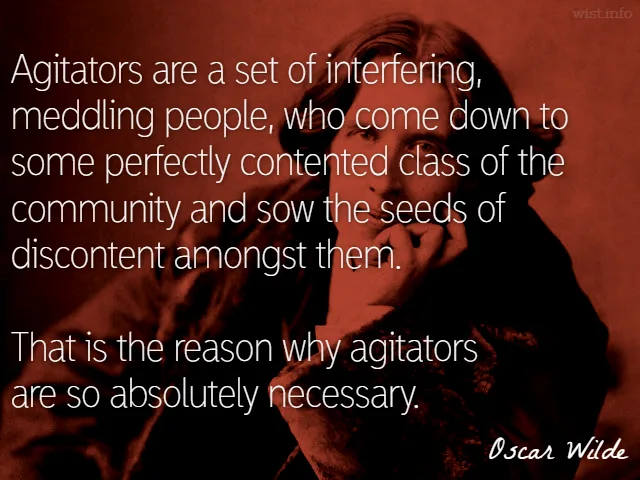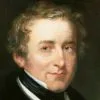So too with our minds. If we do not keep them busy with some particular subject which can serve as a bridle to rein them in, they charge ungovernably about, ranging to and fro over the wastelands of our thoughts. Then, there is no madness, no raving lunacy, which such agitations do not bring forth.
[Ainsi est-il des esprits, si on ne les occupe à certain sujet, qui les bride & contraigne, ils se jettent desreglez, par-ci par là, dans le vague champ des imaginations. Et n’est follie ny réverie, qu’ils ne produisent en cette agitation.]
Michel de Montaigne (1533-1592) French essayist
Essays, Book 1, ch. 8 “Of Idleness [De l’Oisiveté]” (1572) (1.8) (1595) [tr. Screech (1987)]
(Source)
This essay was in the 1st ed. (1595); though the essay was revised for later editions, this text was not. The Essays themselves were begun to cure the melancholy and unrestrained thoughts caused by Montaigne's moving to his country estates, retiring from public life, and isolating himself in the château library for some time. This essay speaks to that experience.
(Source (French)). Alternate translations:So is it of minds, which except they be busied about some subject, that may bridle and keepe them under, they will here and there wildely scatter themselves through the vaste field of imaginations. And there is no follie, or extravagant raving, they produce not in that agitation.
[tr. Florio (1603)]So it is with Wits, which if not applyed to some certain Study that may fix and restrain them, run into a thousand Extravagancies, and are eternally roving here and there in the inextricable Labyrinth of restless Imagination. In which wild and irregular Agitation, there is no Folly, nor idle Fancy they do not light upon.
[tr. Cotton (1686)]So it is with our minds, which, if not applied to some particular subject to check and restrain them, rove about confusedly in the vague expanse of imagination. In which agitation there is no folly nor idle fancy which they do not create.
[tr. Friswell (1868)]So it is with minds, which if not applied to some certain study that may fix and restrain them, run into a thousand extravagances, eternally roving here and there in the vague expanse of the imagination -- in which wild agitation there is no folly, nor idle fancy they do not light upon.
[tr. Cotton/Hazlitt (1877)]So it is with our minds. If we do not apply them to some sort of study that will fix and restrain them, they will drift into a thousand extravagances, and will sternly run here and there in an inextricable labyrinth of restless imagination. In this wild and irregular agitation there is no folly nor idle fancy they do not touch upon.
[tr. Rector (1899)]So it is with our minds: if we do not keep them occupied with a distinct subject, which curbs and restrains them, they run aimlessly to and fro, in the undefined field of imagination. And there is no folly or fantasy to which they do not give birth in this agitation.
[tr. Ives (1925)]So it is with minds. Unless you keep them busy with some definite subject that will bridle and control them, they throw themselves in disorder hither and yon in the vague field of imagination. And there is no mad or idle fancy that they do not bring forth in this agitation.
[tr. Frame (1943)]So it is with our minds. If we do not occupy them with some definite subject which curbs and restrains them, they rush wildly to and fro in the ill-defined field of the imagination. And there is no folly or fantasy that they will not produce in this restless state.
[tr. Cohen (1958)]If [minds] have no object to busy themselves with, something to check and restrain them, they will run free and ramble through the open field of their imagination. And in this state of excitement, minds will come up with all kinds of foolishness and fantasies.
[tr. HyperEssays (2025)]
Quotations about:
agitation
Note not all quotations have been tagged, so Search may find additional quotes on this topic.
Do nothing, only keep agitating, debating; and things will destroy themselves.
Thomas Carlyle (1795-1881) Scottish essayist and historian
The French Revolution: A History, Part 1, Book 6, ch. 3 (1.6.3) (1837)
(Source)
On the inactivity of the elected National Assembly leading up to the Revolution.
What is said by great employers of labor against agitators is unquestionably true. Agitators are a set of interfering, meddling people, who come down to some perfectly contented class of the community and sow the seeds of discontent amongst them. That is the reason why agitators are so absolutely necessary. Without them, in our incomplete state, there would be no advance towards civilization.
Oscar Wilde (1854-1900) Irish poet, wit, dramatist
“The Soul of Man Under Socialism” (1891)
(Source)
Agitation is the marshalling of the conscience of a nation to mold its laws.
Robert Peel (1788-1850) British statesman, Prime Minister (1834-35, 1841-46)
(Attributed)
(Source)
Sometimes quoted as "conscience of a people." Widely quoted without source in the late 19th Century (earliest ref. 1881).
A strong mind is one which does not lose its balance even under the most violent excitement.
[Ein starkes Gemüt ist ein solches, welches auch bei den heftigsten Regungen nicht aus dem Gleichgewicht kommt.]
Karl von Clausewitz (1780-1831) Prussian soldier, historian, military theorist
On War [Vom Kriege], Book 1, ch. 3 “On Military Genius [Der Kriegerische Genius],” (1.3) (1832) [tr. Graham (1873)]
(Source)
(Source (German)). Alternate translations:A stout heart is one which does not lose its balance even under the most violent excitement.
[tr. Jolles (1943)]A strong character is one that will not be unbalanced by the most powerful emotions.
[tr. Howard & Paret (1976)]
If it had not been for the discontent of a few fellows who have not been satisfied with their condition you would still be living in caves. You never would have emerged from the jungle. Intelligent discontent is the mainspring of civilization. Progress is born of agitation. It is agitation or stagnation.
Eugene V. Debs (1855-1926) American union leader, activist, socialist, politician
“The Issue,” Speech, Girard, Kansas (23 May 1908)
(Source)
The whole history of the progress of human liberty shows that all concessions yet made to her august claims, have been born of earnest struggle. The conflict has been exciting, agitating, all-absorbing, and for the time being, putting all other tumults to silence. It must do this or it does nothing. If there is no struggle, there is no progress. Those who profess to favor freedom, and yet depreciate agitation, are men who want crops without plowing up the ground. They want rain without thunder and lightning. They want the ocean without the awful roar of its many waters. This struggle may be a moral one; or it may be a physical one; or it may be both moral and physical; but it must be a struggle. Power concedes nothing without a demand. It never did and it never will.
Frederick Douglass (1817-1895) American abolitionist, orator, writer
Speech on West India Emancipation (4 Aug 1857)
Also cited (in part) as a letter to a colleague in 1849. More background here.








